MercoPress. South Atlantic News Agency
Tag: Falklands Conservation
-
Thursday, April 24th 2025 - 18:10 UTC
Darwin Plus projects in Falklands, and UK Prime Minister’s ODA (Development Assistance) Announcement
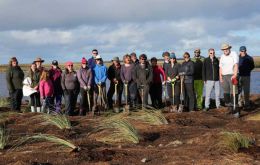
On the 25 February, the UK Prime Minister announced that the UK will increase defence spending to 2.5% of UK gross national income (GNI) from 2027. This will fund the capabilities, technology and industrial capacity vital to keep the UK and allies safe amid an era of renewed state conflict.
-
Wednesday, January 22nd 2025 - 09:13 UTC
Falklands Conservation invitation on Penguin Awareness Day
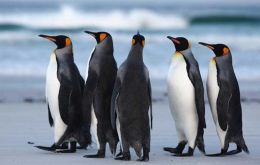
January 20th, Penguin Awareness Day, acknowledged worldwide and the environmental group Falklands Conservation, extended an invitation to celebrate the incredible penguins that call the Falkland Islands home.
-
Monday, July 29th 2024 - 08:06 UTC
Falklands, controversy with Navitas oil company Environmental Impact Statement
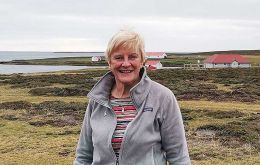
Falklands Conservation has published initial views on the Navitas oil company Environmental Impact Statement (EIS) and encourages people to comment on the report. This is of course welcome but their statement that essential information on key animal groups is missing, is misleading. It states that ‘the presented seabird data is more than 20 years old’.
-
Friday, April 5th 2024 - 10:55 UTC
New Board Chairman at Falklands Conservation
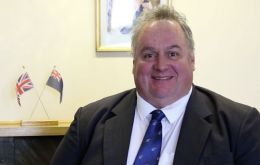
After ten years as Board Chairman of Falklands Conservation, the charity thanked and wished a heartfelt farewell to Roger Spink. His position will be taken over by Tom Blake, from FIDC, Falklands Development Corporation.
-
Friday, April 5th 2024 - 10:45 UTC
Praise for Falklands Conservation in The Times list of charities to support in 2024
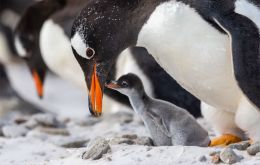
As of the end of March, Falklands Conservation was featured in The Times and The Sunday Times as one of the charities to support in 2024. The article points out that UK has a long history of charitable giving (“charity” was first defined in English law as early as 1601). The problem comes with choosing which worthy organizations to give to.
-
Tuesday, February 20th 2024 - 09:15 UTC
Falklands Conservation outlines significance of World Whale Day 2024

World Whale Day, WWD was created in 1980 by Greg Kaufman founder of the nonprofit organization, Pacific Whale Foundation, and is celebrated the third Sunday of February.
-
Wednesday, November 30th 2022 - 10:32 UTC
Falklands part of the global climate crisis, both in consequences and attempts to find solutions

Falklands Conservation has called for a commitment to a net-zero greenhouse gas target for the Falkland Islands by 2050 - in line with a range of other nations from around the globe - as CEO of Falklands Conservation Esther Bertram said that without action “the Falklands are part of the global climate crisis, both in feeling the consequences and in trying to find solutions.”
-
Friday, November 18th 2022 - 09:49 UTC
Sei whale breeding song identified for the first time in Falklands' waters
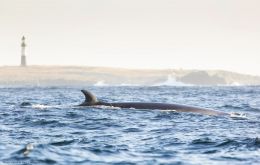
Acoustic research by wildlife charity, Falklands Conservation (FC), and the non-profit African Aquatic Conservation Fund (AACF), has revealed seasonal singing by sei whales in the Falkland Islands, documenting a breeding song display in this Endangered cetacean for the first time.
-
Tuesday, August 2nd 2022 - 09:02 UTC
Falklands Conservation tracking Southern Right Whales

As part of the Darwin Plus funded project (DPLUS126), Falklands Conservation are aiming to deploy up to 10 satellite tags on southern right whales during the winters of 2022 and 2023. The research questions for southern right whales mean that Falklands Conservation scientists will use two different types of tags:
-
Wednesday, July 27th 2022 - 09:20 UTC
Falklands’ inshore waters recognized as globally significant seabird hotspot
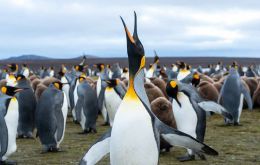
A Falklands Conservation project has identified the Falklands Islands’ inshore waters as globally recognized Key Biodiversity Areas (KBA) for breeding seabirds, driving forward their aim for quality marine management practices in the Islands.
